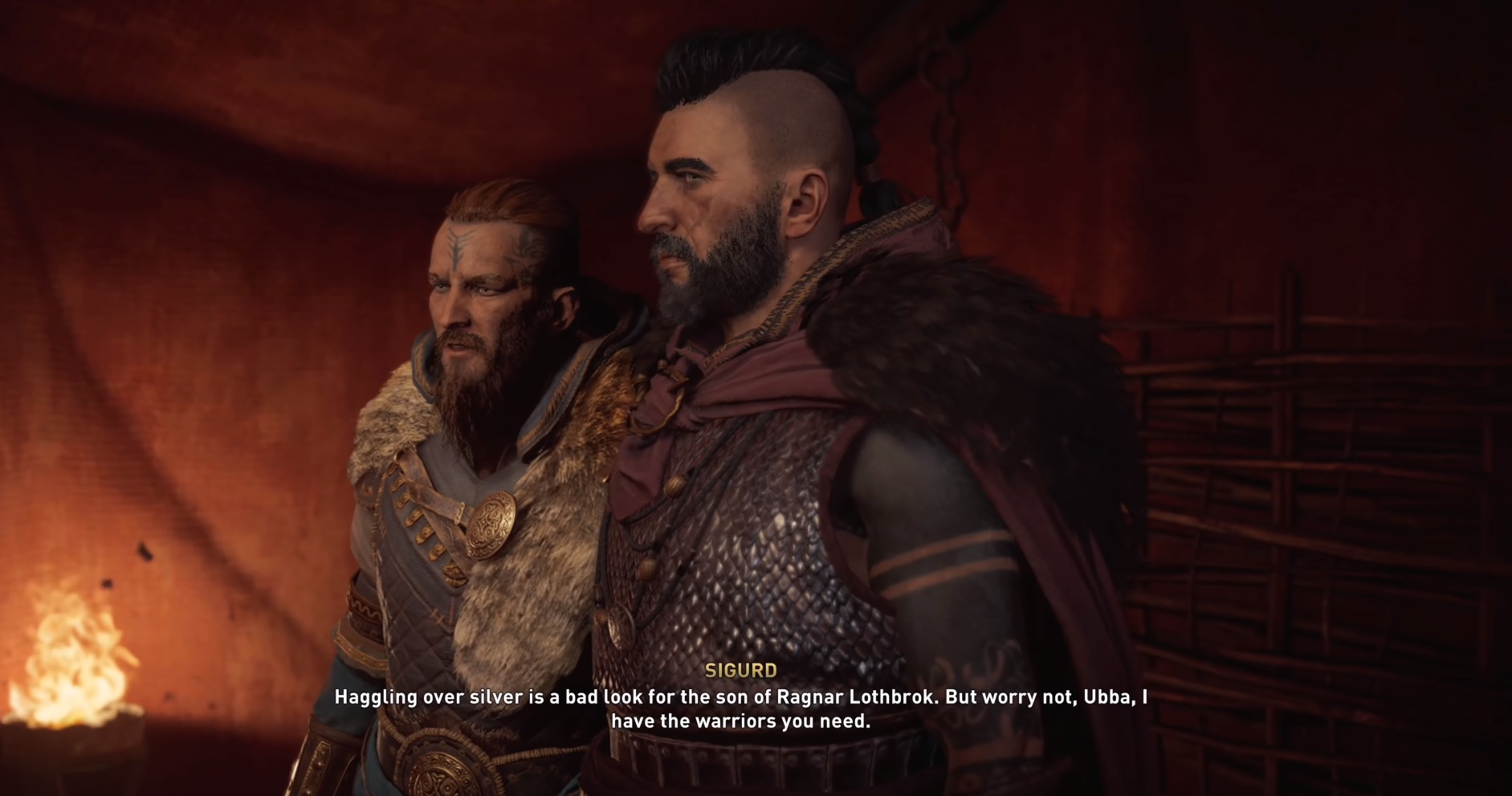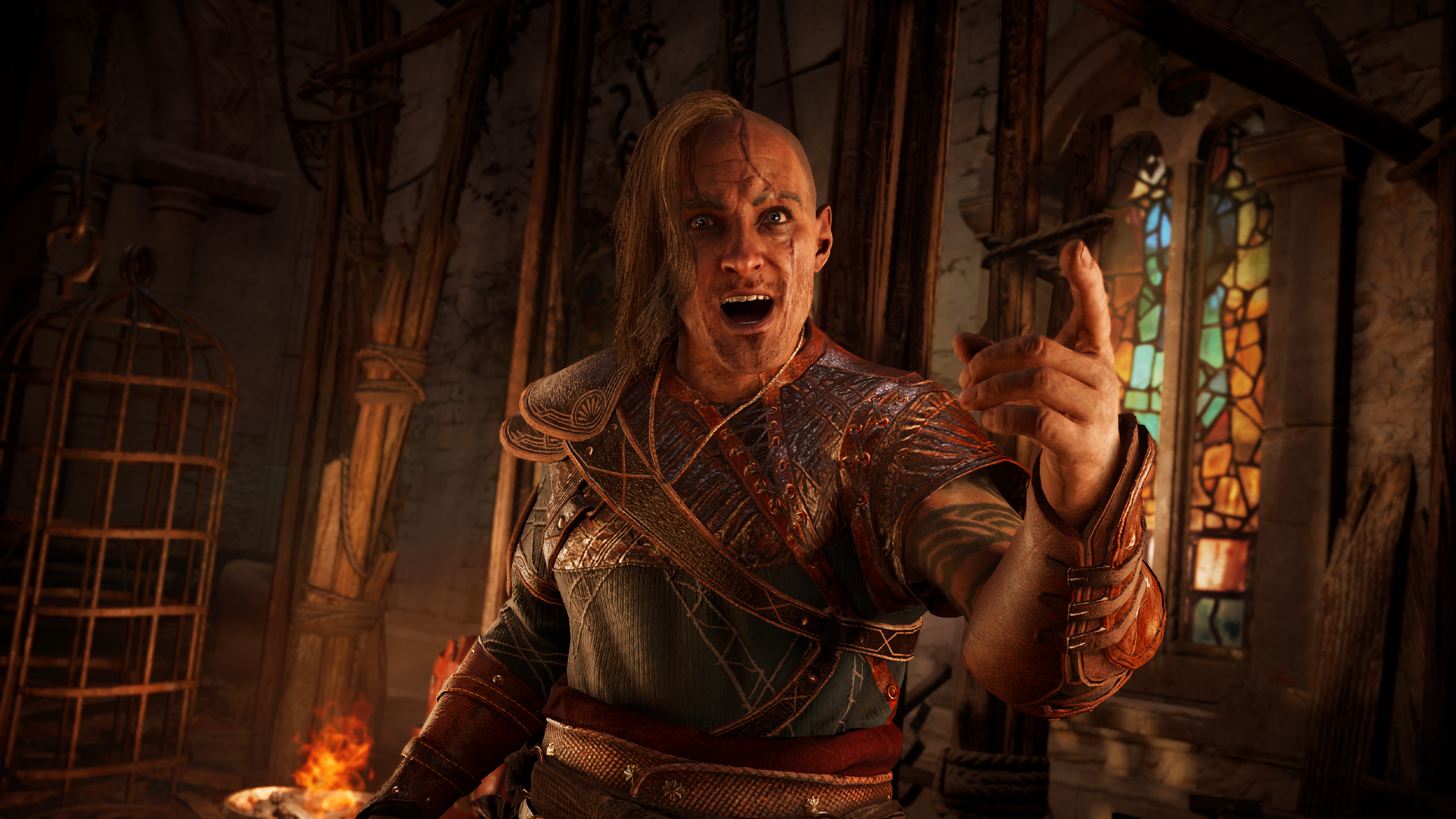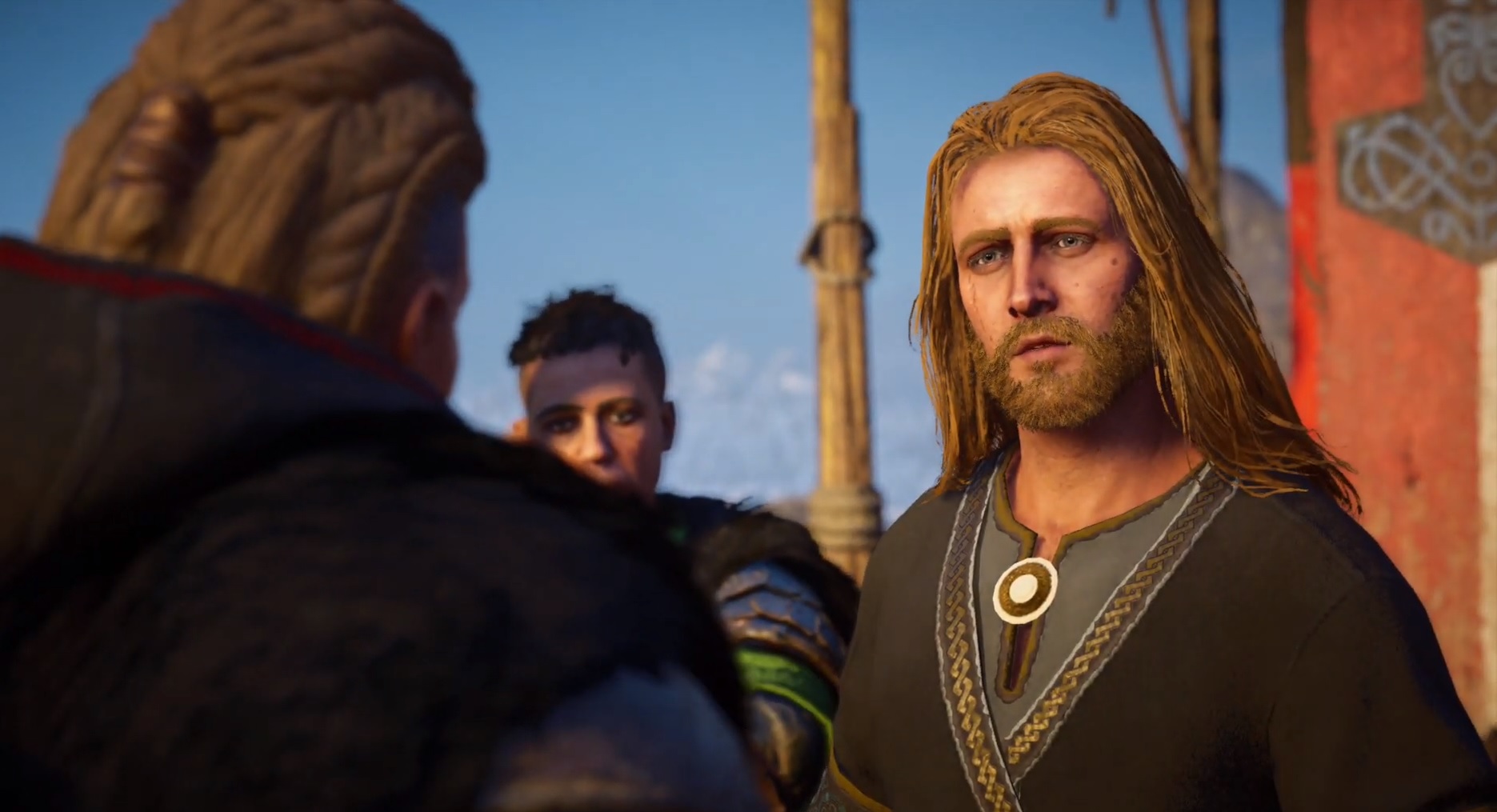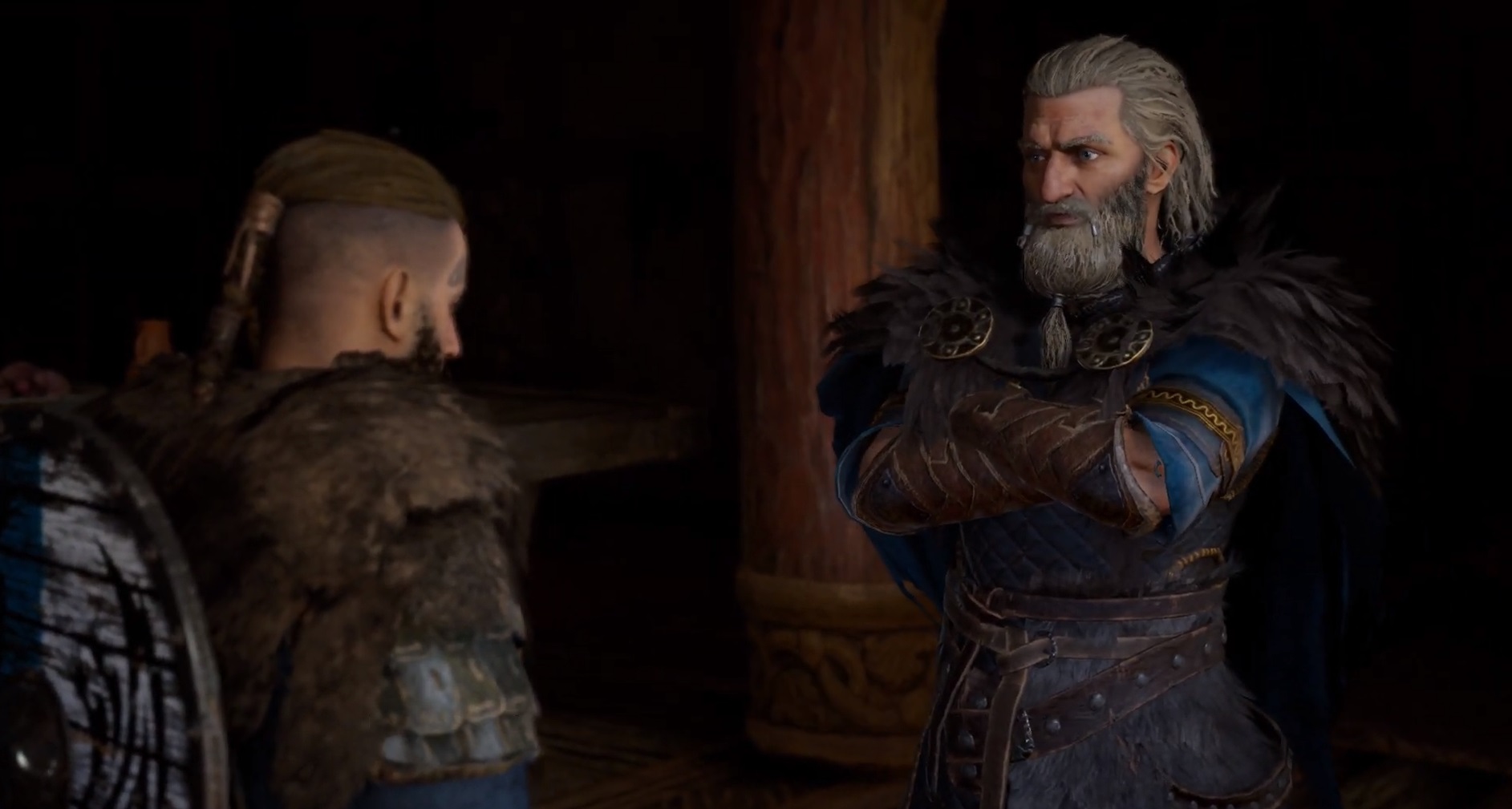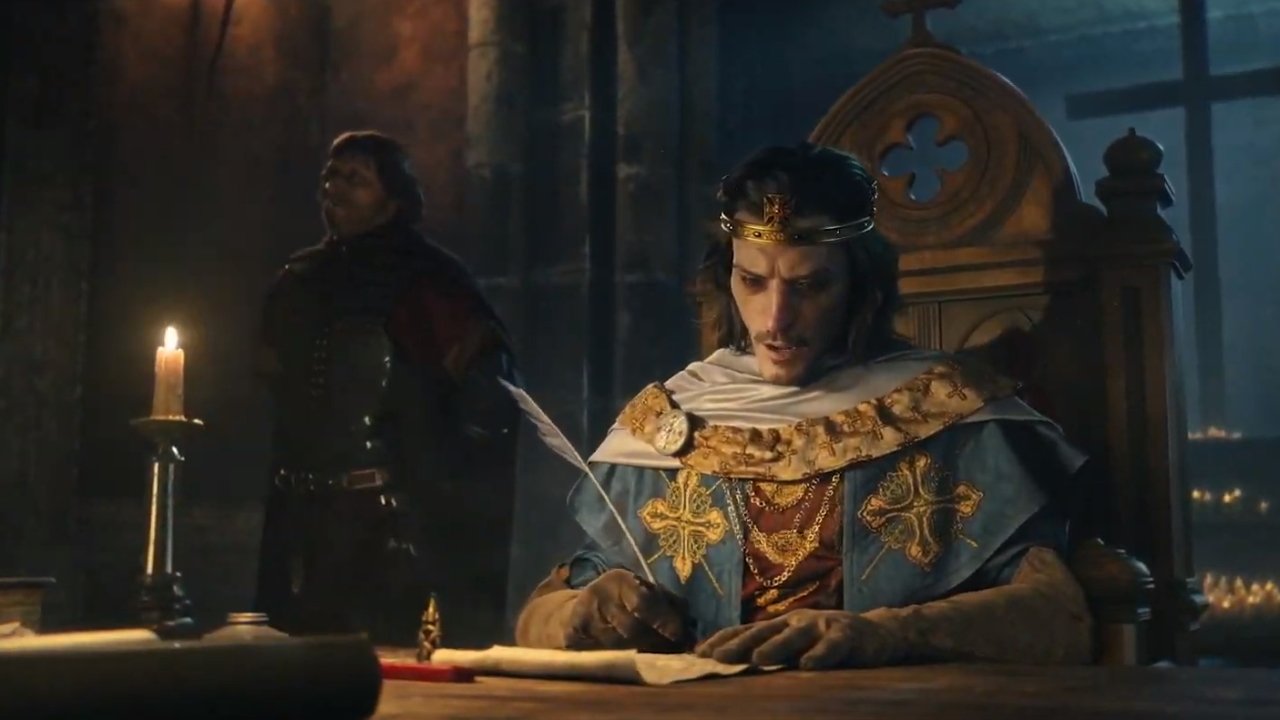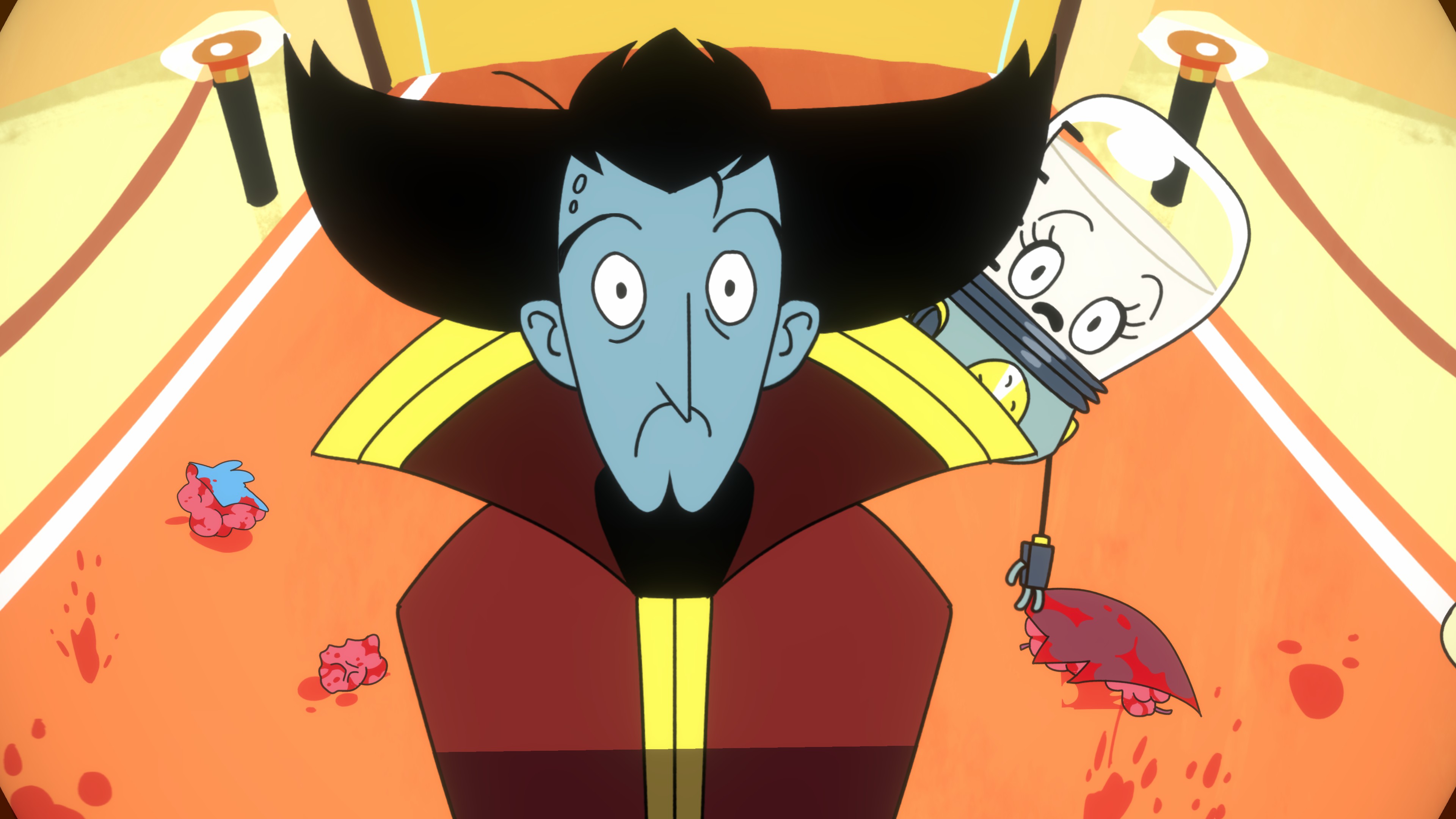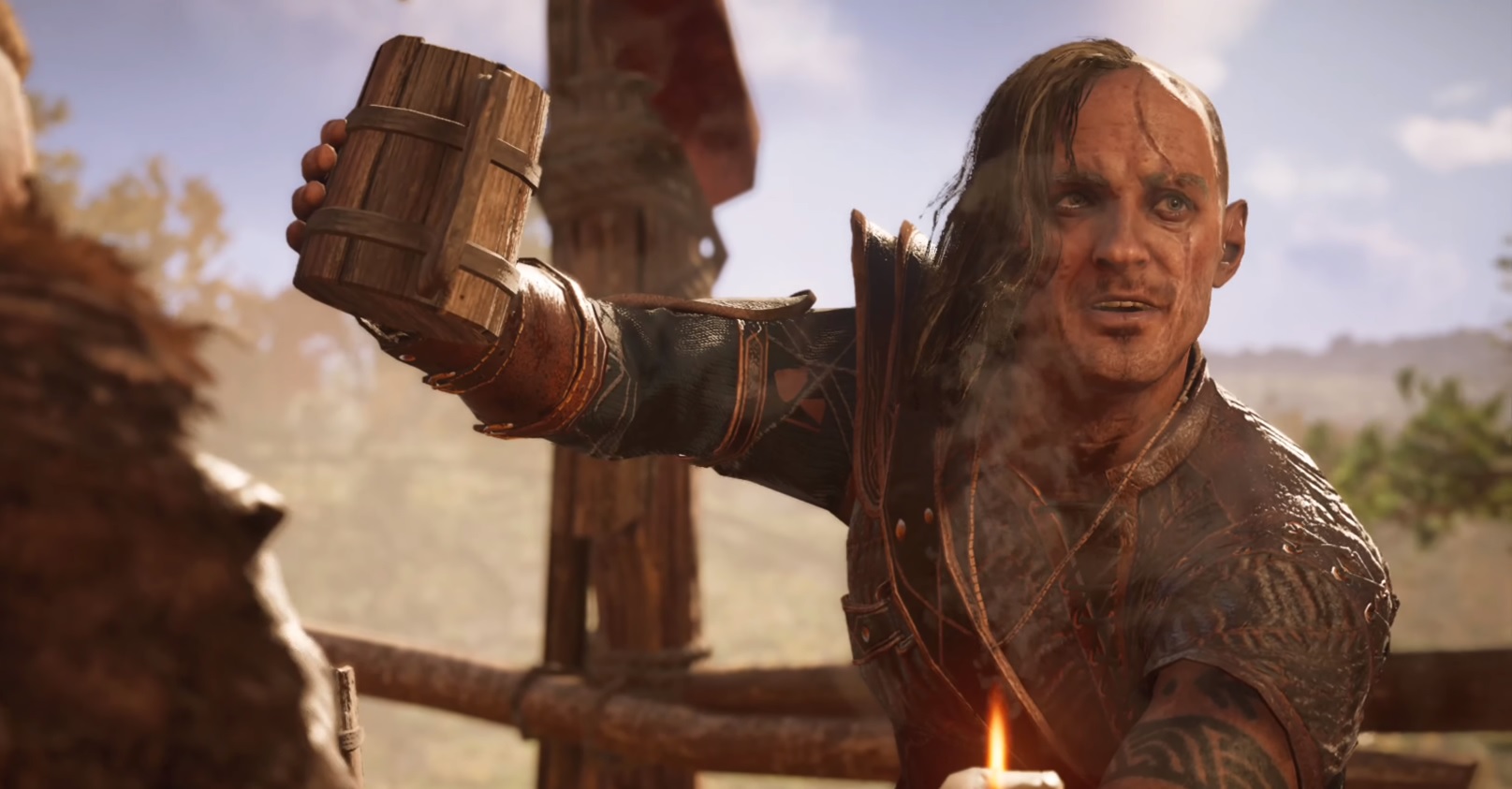
Assassin's Creed Valhalla picks up right around the height of the Viking Age in 872. Noblemen from Scandinavia, no longer content to merely sail up to a monastery and take all of their stuff, were in the process of invading and founding kingdoms abroad—including in England, where most of the game is set. Norway was about to recognize its first king, an event we get to see first-hand. Not all of the legendary characters Eivor rubs elbows with are well historically attested, but we're pretty sure most of them at least existed, even if not all of the stories told about them are strictly true.
Ragnar Lodbrok
While Ragnar himself has been dead for some time when Eivor arrives in England, his so-called sons are very important to the story and he is referenced liberally. He's become a household name lately thanks to History's pseudo-historical drama Vikings. And that's exactly what he is: pseudo-historical. Most of Ragnar's life story is told in sagas that were written down hundreds of years after his supposed lifetime, and they clearly contain a lot of embellishments.
We know from written Frankish sources that Paris was sacked in 845 by a Viking leader they called "Reginherus", which is how a court scribe probably would have written the Norse name Ragnar because they have to make everything sound all Latin-y. But just about all we can say for sure is that there was a guy named Ragnar who was probably a badass and sacked Paris about 30 years before the game is set.
Ivar the Boneless
And what about his so-called sons? Well, we're a bit more confident about their exploits since so much of it was chronicled by literate English and Gaelic writers. Whether or not they were all brothers by blood, we're not sure. They may have just called themselves brothers (much as Eivor and Sigurd do in the game), and picked Ragnar as a symbol to rally around. And seeking revenge for their dad being flung into a snake pit thing might also be a dramatic invention. They might have actually just wanted more land, like everyone with an army seemingly did around this time. England is a much better place to grow crops than frigid, rocky Norway.
Ivar, commonly referred to as "the Boneless", is one of the most famous of the so-called brothers, and a subject of much debate due to his odd nickname. Assassin's Creed chooses to portray him without any disability, suggesting that "boneless" refers to how he can "move like a reed in the wind." That's one real theory, but there are others, such as that he may have had brittle bone disease or some other condition that limited his mobility. In some legendary depictions, he's even described being carried into battle by his men, sitting on his shield and swinging two axes down at the foes below. His portrayal in Valhalla as one of the most savage and bloodthirsty Vikings certainly lines up with this.
Ivar is also commonly conflated with Imar, a Norse king of Dublin, so we may be seeing more of him when next year's DLC takes us to the Emerald Isle. Dublin was, after all, founded as a Viking port around this time. The idea of this version of Ivar being put in charge of anything more important than his own temper doesn't really bode well for the region, though.
Harald Fairhair
While commonly recognized as the first King of Norway, the semi-legendary Harald Fairhair didn't exactly wield absolute power. Norway's rugged, fractured geography makes it very difficult to administer from a central location without modern communications and infrastructure, which is part of why the Norse became so good at making boats. What Harald actually accomplished was almost more like securing an alliance of all the local jarls in which he would be a first among equals. Sigurd in Valhalla doesn't seem to see it that way, and certainly many didn't. Waves of Norse settlers arriving in the British Isles, Frisia, and Northern France around this time very well may have been inspired by a desire to escape increasing royal authority back home.
Keep up to date with the most important stories and the best deals, as picked by the PC Gamer team.
They were also probably mad that he was prettier than them. And Ubisoft seems to have gotten his look right. If the stories are to be believed, he was a very tall, handsome man with a long mane of golden, flowing hair. Per the sagas, he swore never to cut it until he was the king of all Norway. But I kind of hope he keeps it like that even after having achieved his goals.
Valhalla shows him as charismatic, magnanimous, but uncompromising. It's a good look for a would-be king. You don't have to go to as much trouble bringing a bunch of fractious warlords under a single crown if you can get them to like you enough, avoiding a big dust up. He plays up an idea of national unity and shared accomplishment that might seem familiar to us in the present, but wasn't at all common in Europe until hundreds of years later. Fairhair and his successors would still have to deal with rowdy vassals for generations, like our pal Sigurd, before power was really consolidated. But he got the ball rolling. And by all accounts, he looked fabulous doing it.
Guthrum
Guthrum and his Great Summer Army were a group of Danes that represented the second major wave of Norse invasion and settlement into Britain in 871, just before the main events of the game take place. He's most famous, at least in the English-speaking world, for trying to invade Wessex and failing hard, thanks to good ol' Alfred the Great. We'll get to him in a second. He sort of gets a bad rap for being the guy who threw the whole series starting with a six-to-one lead against the Anglo-Saxons. But he was actually baptized in 878 and continued to rule a large kingdom peacefully, as an equal to Wessex, for quite a long time after his famous defeat. We can call it a draw.
In Valhalla, Guthrum is an enormous, burly man with plenty of bluster and self-assuredness. He seems convinced that his fate is to topple the last Christian kingdom on the island, though he auspiciously underestimates Alfred's savvy at every turn. We really don't know much about the personalities or mannerisms of most leaders from this period, but Ubisoft seems to have done a good job creating a believable, if slightly larger than life, version of the burly Viking.
Alfred the Great
The King of Wessex who finally turned back the tide of Norse invasion and became the only English king to ever earn the name "the Great" is often depicted as the big hero of this era. Valhalla, by contrast, sets him up as one of the principal villains. He's ruthless, scheming, shrewd, and lit with gloomy menace upon his throne. You don't get the sense that this is a guy to be messed with, but not because he's some righteous paragon of a noble kingdom. More so because you think he'd probably push you off of a rooftop and then sell your orphaned children for some tapestries. He's ambitious, and not beyond sacrificing his own people to get what he wants.
He's also attended by a "paladin", which was a name used in literature for the legendary companions of the Frankish Emperor Charlemagne and eventually ended up being a catch-all term for fantasy knights with holy missions. Not only would Alfred not have called his retainers that, but there’s no evidence Charlemagne even used it. Sorry to burst your holy bubble.
Historically, Alfred turned back the advances of Guthrum into Wessex, which at the time was the only Anglo-Saxon kingdom which had not fallen under subjugation by the Northmen. When he arrives on the scene, then, you know trouble is coming. After all, it's a Viking game and he's probably history's most famous crusher of Vikings. His victories represented a major turning point in the Norse invasions of Britain, which would be slowly rolled back by Alfred and his successors and lead to the first unified Kingdom of England.
Like all Assassin's Creeds, Valhalla plays fast and loose with its historical characters and events, even when it's not focusing on the war between the Assassins and Templars. History is always the starting point, however, so even when you're leaping off towers and killing 30 people without breaking a sweat, there's still an air of authenticity. It's fantasy, but grounded in reality.
Len Hafer is a freelancer and lifelong PC gamer with a specialty in strategy, RPGs, horror, and survival games. A chance encounter with Warcraft 2: Tides of Darkness changed her life forever. Today, her favorites include the grand strategy games from Paradox Interactive like Crusader Kings and Europa Universalis, and thought-provoking, story-rich RPGs like Persona 5 and Disco Elysium. She also loves history, hiking in the mountains of Colorado, and heavy metal music.
